What do you notice first in your garden - the rose or the deadhead?
nippstress - zone 5 Nebraska
8 years ago
Featured Answer
Sort by:Oldest
Comments (35)
altorama Ray
8 years agoUser
8 years agoRelated Discussions
Can you show me your rose beds (or, where do you plant your roses
Comments (34)CI, TZ, SdlM all growing nicely now. I think this will be a good fragrance bed. I put Lion's rose in the back to add beauty and a good leafy background even though it isn't much on scent. I think if the base gets shaded by the others, it won't get disease. There's room to the right of Abe Darby for one more big rose. I think it's going to be Evelyn. Hopefully, it will work some magic for me. This is a good morning sun spot and gets shade in the hottest times of the day. My summer is a little hotter than Hoovb's but maybe it's close enough. I'm going to hope for the best. The only downside to this location is that it will take the full force of the Santa Ana wind from across the street. We are along the Santa Ana river channel and the wind blows strongly through the gap. It seems to be shifting later than Halloween now. I used to call it the Halloween Wind....See MoreHow do you protect your garden roses...
Comments (17)Looking at your new list of roses, I doubt you will need to worry much about wind damage. Perhaps when they are very young, but after established, they should be fine. If your experience to date is mainly HT's as you indicate, then you'll be in for a pleasant surprise. HT's are notorious for suffering cane damage in heavy winds when in full bloom. For instance, all but the most sturdy HT varieties are essentially long sticks with big blooms up at the top. This makes them very top heavy in heavy wind and when the blooms are filled with rain they tend to bend over or just break off at the base or down the cane. Some thoughts on your new roses: - Cinderella Fairy Tale- Almost tip hardy in Toronto. Almost bullet proof in terms of disease resistance, but can get some very mild late season mildew here. Just like everything else in our gardens... - Morden Blush- Beautiful and tip hardy in most winters in Toronto area. Will get some BS by mid-summer, but can usually shrug it off and keep blooming. Expect about 30% defoliation from lower leaves. Few roses bloom as heavily and repeat as well as this rose if it is deadheaded after each bloom cycle. - Crocus rose (Bit of a risk. I'm hoping I grow to love Austins) Not risky. Very hardy and decent disease resistance. Early season mildew more of an issue than BS here. Needs a few years to grow a frame and can be floppy in the first 2 years with the big blooms. Not much fragrance for an Austin, but a winner in cold zones. - Julia Child- Nice yellow Floribunda with a great fragrance and is a good bloomer. Fades from bright yellow to off-white yellow. Stays pretty small here and will likely get some BS by mid/late summer. A nice rose though and pretty good hardiness for a yellow Floribunda. - Betty Boop- Blooming machine and very eye-catching when in bloom. Decent winter hardiness, but will also likely get some BS here by mid-summer. A favorite of mine and a good rose. Good luck and enjoy....See MoreHow vigilant are you about deadheading your roses?
Comments (27)I'm with oldrosarian that with around 1000 roses I learn to have fast fingers. I have it much easier than she does though, since roses in warm climates bloom incredibly more than roses in my climate. Like Moses, I really want to see maximum bloom from the roses so I deadhead as often as I can. I do a serious round of deadheading and photo collection every weekend in blooming seasons which usually takes around 2-3 hours (see, not that many blooms in my zone), with some touchup deadheading of my favorites like Lisa mentions in the evenings if I get a walk around the garden after work. If I miss a week for some reason or another it can take most of a gardening day to catch up the next weekend, but since there's little else needing doing in the garden in peak summer hours it's an excuse to be out in the yard where I "need" to get some "chores" done and "have" to put off things like laundry (smile). The cluster flowered bloomers like hybrid musks or Knockouts get pruned at the base of the clusters, and I do shaping pruning of the bushes later in the season if they get big enough that also speeds up deadheading a lot. Roses like Darlow's Enigma that bloom regardless of what I do don't get deadheaded at all - fortunate, being the thorny monster he is - and I'm rarely motivated to get out the ladder to deadhead the few climbers that really get beyond arm's reach in zone 5 more than once or twice a season. Kristen, I can totally relate that I deadhead other people's roses without even noticing I do that. There are some roses with dead canes towering above live growth at one of my doctors' offices and I swear I'm going to bring my pruners next time I'm there and make them (and me) more comfortable. Cynthia...See MoreHow do you deadhead your roses?
Comments (9)I prune to a 5 leaflet where the stem is at least pencil thick also, on a hybrid tea type bush. On all other classes of roses the 'pencil thick,' rule is up to adjustments, usually thinner with floribunda type bushes...certainly the Drifts when dead headed are thinner. I also try to make the cut where the new shoot will point in a direction that helps maintain the bush's form, not going lob sided. Lastly, with long stemmed upright growers as many hybrid teas are, especially Meilland roses, I will go farther down the cane than the first 5 leaflet/minimally pencil thick spot, to make my dead head cut. This keeps the bush from getting too lanky. Those who grow Princess Charlene of Monaco know what I mean regarding lankiness. Moses...See Moreseil zone 6b MI
8 years agoLeigh Wilson Versaggi Architecture
8 years agoaltorama Ray
8 years agoratdogheads z5b NH
8 years agoodinthor
8 years agos
8 years agomichaelg
8 years agoaltorama Ray
8 years agocatsrose
8 years agoplectrudis (Zone 8b Central TX)
8 years agolast modified: 8 years agoRosefolly
8 years agomichaelg
8 years agorathersmallbunny
8 years agoL G
8 years agosummersrhythm_z6a
8 years agoroseseek
8 years agoaltorama Ray
8 years agonippstress - zone 5 Nebraska
8 years agoLavender Lass
8 years agolast modified: 8 years agoLavender Lass
8 years agolast modified: 8 years agojjpeace (zone 5b Canada)
8 years agoUser
8 years agolast modified: 8 years agoroseseek
8 years agoUser
8 years agomendocino_rose
8 years agoroseseek
8 years agoodinthor
8 years agosummersrhythm_z6a
8 years agoLavender Lass
8 years agonippstress - zone 5 Nebraska
8 years agoodinthor
8 years agonippstress - zone 5 Nebraska
8 years ago
Related Stories
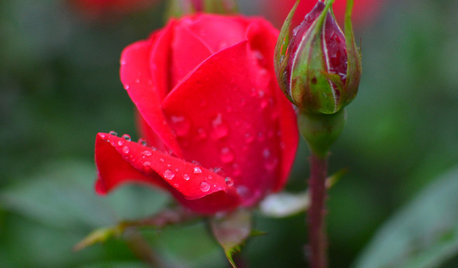
GARDENING GUIDESGreat Design Plant: Knock Out Roses
As glorious as their high-maintenance kin for a fraction of the work, Knock Out roses make even beginners look like garden stars
Full Story
WINTER GARDENINGPruning Secrets for Exquisite Roses
Encourage gorgeous blooms year after year with this time-tested advice on how to prune your rosebush in winter for health and shape
Full Story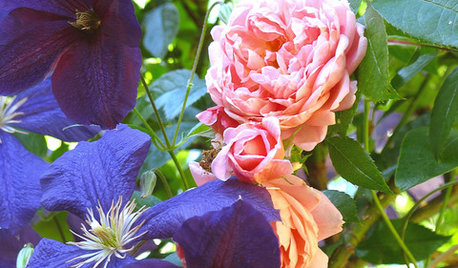
PLANTING IDEASGreat Garden Combo: Rose + Clematis for Small-Space Impact
We all need somebody to lean on. And when a rose supports a climbing vine, the results can totally transform a small garden
Full Story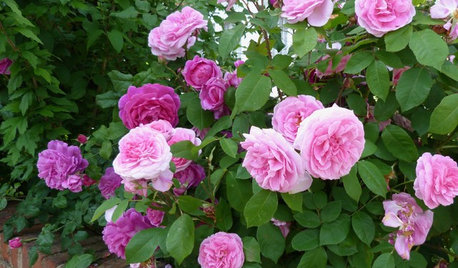
GARDENING GUIDESWhat Kind of Roses Should You Grow?
Want to add the beauty of roses to your garden? Find out which ones, from old-fashioned to modern, are right for you
Full Story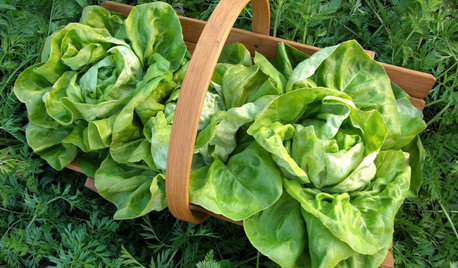
GARDENING GUIDES10 Easy Edibles for First-Time Gardeners
Focus on these beginner-friendly vegetables, herbs, beans and salad greens to start a home farm with little fuss
Full Story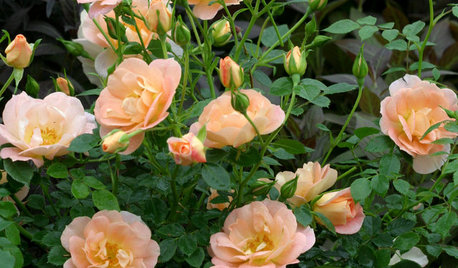
GARDENING GUIDES6 Wonderfully Easy Roses for Any Gardener
Look like an expert even if you're just starting out, with these low-maintenance gems of the rose world
Full Story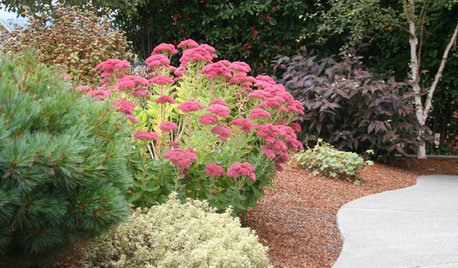
GARDENING GUIDESPacific Northwest Gardener's August Checklist
Deadheading perennials, cutting raspberry canes and preparing for the onion harvest keeps Northwest gardeners busy in August
Full Story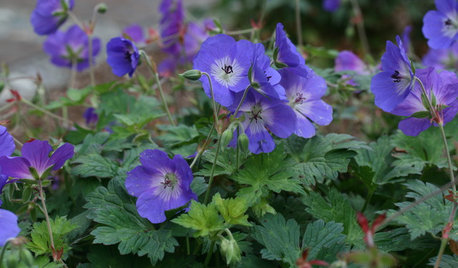
FLOWERSGreat Design Plant: 'Rozanne' Cranesbill
Try this vigorous scrambling beauty as a ground cover or container plant for captivating garden color all summer long
Full Story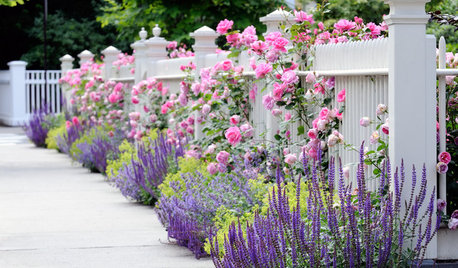
GARDENING GUIDES10 Tips to Start a Garden — Can-Do Ideas for Beginners
Green up your landscape even if you're short on time, money and knowledge, with these manageable steps for first-time gardeners
Full Story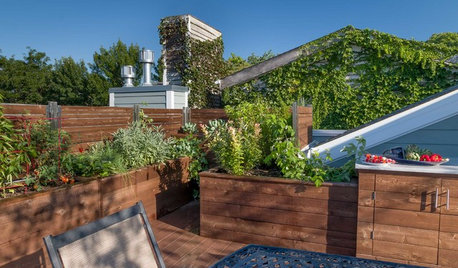
GARDENING GUIDES10 Tips for Beginning Gardeners
With a simple sketch, basic tools and the right plants, you’ll be on your way to growing your first flowers or edibles
Full Story


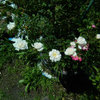



BethC in 8a Forney, TX